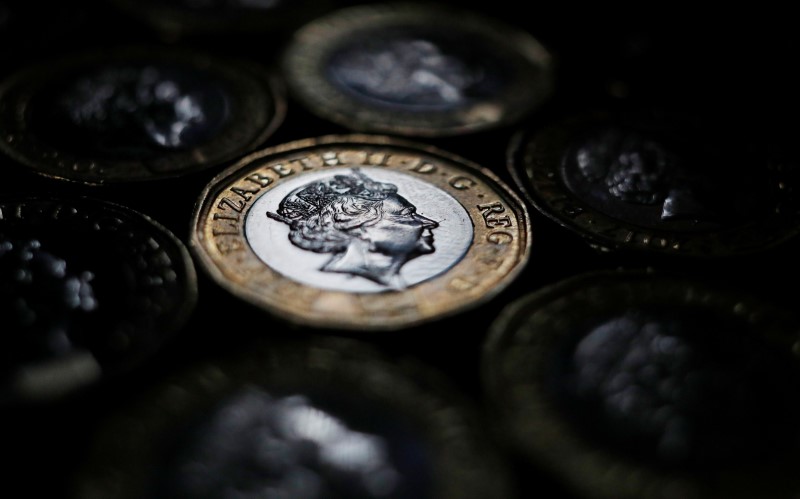By Samuel Indyk
Investing.com – The pound was trading lower on Monday morning as fears that the Omicron variant may cause additional restrictions weighed on the currency. The UK Prime Minister Boris Johnson delivered a statement on Sunday night detailing how quickly the new variant is spreading throughout the UK.
“There is a tidal wave of Omicron coming,” Johnson said in a pre-recorded address.
Cases of the variant are doubling every two to three days in Britain with UK Health Secretary Sajid Javid saying that Omicron was probably behind around 40% of infections in London.
There are fears that rapidly increasing cases could lead to additional restrictions or a slow down in activity heading into the busy holiday period as people act with added caution heading into Christmas.
GBP/USD declined around 0.3% to 1.3221 while EUR/GBP was relatively stable at 0.8524.
The Bank of England is scheduled to meet on Thursday with the threat of the Omicron variant likely to mean that interest rates remain at their record low level for a 16th consecutive meeting.
Turkish Lira Hits Record Low
The decline in the pound is nothing compared to the depreciation observed in the Turkish lira. USD/TRY exceeded 14.0000 and traded at a record level of 14.4995 on Monday morning after the ratings agency S&P lowered the outlook on the sovereign credit rating to negative from stable, citing rising risks.
“The negative outlook reflects what we view to be rising risks to Turkey's externally leveraged economy over the next 12 months from extreme currency volatility and rising inflation, amid mixed policy signals,” the ratings agency said.
Comments from the Turkish Finance Minister Nabati did little to stem the weakness. Nabati said that although he does not know whether rate cuts will continue, the government is determined not to hike rates.
The Central Bank of Turkey meets on Thursday where it is expected to lower the one-week repo rate by another 100 basis points to 14.00%.
17 Central Bank Meetings This Week
In total, there are 17 central bank decisions this week, including the Federal Reserve, European Central Bank and Bank of Japan.
The Fed is expected to speed up the pace of taper which could lead to an earlier rate hike than previously expected. The previous dot plot in September showed just half of the policymakers expected an increase in the Fed Funds Rate next year but this is expected to increase this time around.
Neither the ECB nor the BoJ is expected to make any major changes to monetary policy at their meetings this week.
